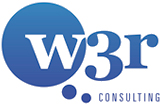Want to Recession-Proof Your IT Career? These 2 Industries May Offer the Stability You Crave
Everyone wants to know if we’re headed towards the sharp cliff of a full-blown recession or the rolling hills of a milder economic contraction, but the last few months have provided few concrete answers. In October alone, Crunchbase reported 45,000 U.S. tech workers were laid off, while at the same time, the Dow Jones had its best showing since 1976. As two-thirds of business economists predict a recession in the next year, Goldman Sachs CEO David Solomon says we could see inflation resolve in a “soft landing” over the same timeframe.
No matter what trajectory the economy takes in the coming months, IT professionals may be able to secure their careers by working in either of two industries: healthcare or financial services. Is this stability too good to be true? Here’s what current signs in both fields forecast for their respective tech professionals.
Healthcare
For decades, healthcare providers have weathered recessions and economic instability due to several key factors:
- For healthcare providers, demand fluctuates with the seasons, epidemics or pandemics, and other factors, but there is some resiliency against economic downturn. Yes, patients might forgo elective procedures or the treatment of low-risk conditions, but they cannot avoid emergency treatment or even many instances of proactive care. As a result, the IT professionals supporting operations and efficiency are more often exempt from layoffs.
- During a recession, hospitals are less likely to replace front-line care professionals with lower-wage workers because of the necessary licensing requirements needed to practice medicine. As a result, there is less turnover during challenging times, mitigating the risk that turnover can hurt productivity or performance in ways that ripple throughout the company (including IT). Additionally, layoffs or employee churn can also result in heightened customer turnover. When there is more stability for nurses and doctors, there is also greater security for the IT professionals who support them.
Some of these conditions remain true today. Recent changes in the wake of the pandemic have expanded some other sources of stability. For example, the U.S. Department of Health and Human Services (HHS) is extending the length of time states can use funding made available through the American Rescue Plan for home-based and community-based services. Though not earmarked for cloud solutions or app development, tech professionals within state departments or healthcare systems benefit indirectly from implementation programs—and even just additional funds reducing the strain upon providers. Other government programs can help to alleviate budgetary strain.
What about healthcare payors? There have been some auspicious signs for the industry’s health. McKinsey found that in 2021, 55 new insurers joined the market, a crowning increase since 2015. Between 2021 and 2022, there was 50% growth in the offerings from insurance companies to consumers.
With the American Rescue Plan Act of 2021, the industry has received subsidies for monthly premiums, which has created more reliable compensation for insurers while stabilizing the expenses of the average American. Though Congress needs to prolong this funding to downplay the worst of any economic speed bumps, the funding to this point (as well as the ongoing innovation and growth of their solutions) could act as a shock absorber. For IT professionals working in these companies, it could be the difference between reliable work and an unplanned job search.
Financial Services
No industry is quite as aware of potential recession as the financial services industry. In the past, major international crises might have unmoored the sector, but there are signs the market is more resilient today. In fact, EY bank risk management surveys conducted in 2021 identified industry leaders were “pleasantly surprised by how well their organizations have coped” during the pandemic. Evolution in technology and practices have made this possible as well as making jobs more secure.
There were at least some lessons learned from the Great Recession. For example, the Federal Reserve has worked to prepare the largest U.S. bank holding companies for worst-case scenarios by conducting annual stress-test exercises. By preparing for instances of asset price shock and loan loss shock as well as scenarios proposed by the banks themselves, the industry is less vulnerable to macroeconomic issues and can reduce future threats. As organizations dwindle down scenarios where they will be hit financially, they also reduce the potential need for IT layoffs when times get tough.
During the pandemic, traditional banking responded uncertainty, changing guidelines, and technical bugs. Some of their most deft maneuvering happened as they scaled up procedures and even new platforms to address and deliver PPP loans. Commercial banking made giant leaps forward in its digital transformation journey. As a result, IT professionals have found their true calling within financial services organizations, streamlining operations during uncertain times and driving profitability.
Moreover, digital banking transformation strategies have created greater resiliency for commercial banks and other organizations; in fact, nearly two-thirds of all banks and credit unions have implemented such technologies. The remaining hold-out institutions can expect cost-savings and revenue-generating measures aplenty once they follow suit. Chatbots can save failed customer applications, RPA can lower the cost of operations, and AI can earn an extra $1 trillion each year for the global banking industry. Those are just a fraction of use cases.
With the demand for these services and their ability to protect profits in difficult times, IT professionals have a much more stable position in these companies than they once did.
Conclusion
Though no industry is truly recession-proof, both the healthcare industry and the financial services sector are better prepared in critical ways that other sectors are not. Both have grown increasingly resilient in their operations through digital transformation and reliance upon the work of resourceful tech professionals to achieve business goals and profitability. Whether this environment is right for you depends on your work preferences and professional objectives, but one thing can be said: there is no shortage of opportunities if you choose to go down this road—during good times and bad.
If you’re looking ahead and want to find the best recession-proof jobs, we can help. Check out our open jobs or reach out to one of our recruiters today.
Related Articles
How to Bounce Back After Getting Laid Off from Your IT Job
Ready to Change Jobs? 3 Reasons to Make the Switch to Healthcare IT
Changing Industries as a Project Manager: Your 3 Steps to Success

